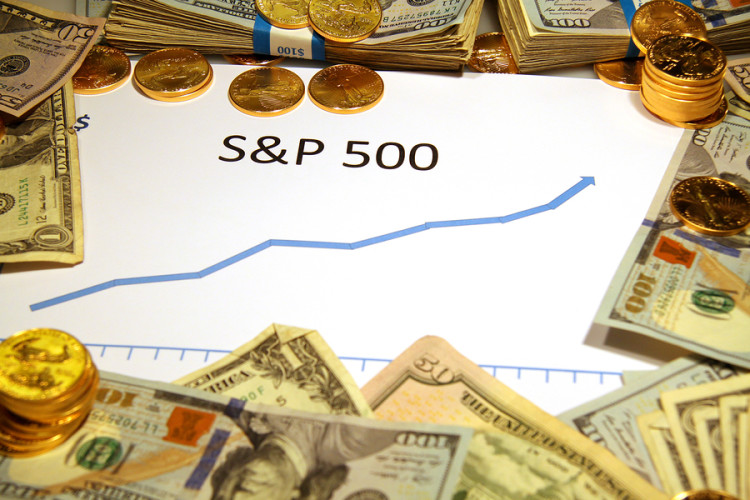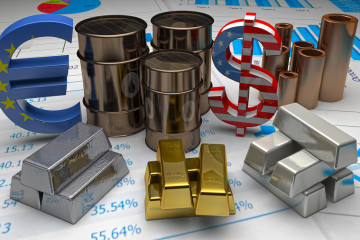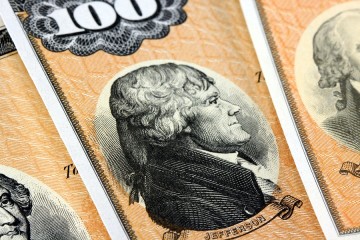S&P 500 Slides With Crude as Treasuries Slump on Fed Rate Bets

©2015 Bloomberg News
NYQY7R6KLVRB
NYQY7R6KLVRB
(Bloomberg) — U.S. stocks fell the most in two weeks as crude plunged past $40 a barrel to send energy shares tumbling. Treasuries fell after Federal Reserve Chair Janet Yellen indicated increasing confidence in the economy two weeks before central bank officials meet.
The Standard & Poor’s 500 Index extended losses in afternoon trading as crude’s decline accelerated before an OPEC meeting Friday. The yield on 10-year Treasury notes rose the most in almost a month, while the dollar hovered near the highest in a decade as Yellen’s remarks laid the groundwork for tightening.
As three days of economic events likely to set the course for global markets into 2016 kicked off, traders’ focus on diverging monetary policies was diverted by a renewed rout in crude, as OPEC has shown few signs it will vote to trim output. Yellen is increasingly confident the economy is growing, intensifying speculation the Fed will tighten just as the ECB seems poised to expand stimulus. Investors are awaiting Friday’s jobs report, the last major data before the Fed’s Dec. 16 meeting.
As three days of economic events likely to set the course for global markets into 2016 kicked off, traders’ focus on diverging monetary policies was diverted by a renewed rout in crude, as OPEC has shown few signs it will vote to trim output. Yellen is increasingly confident the economy is growing, intensifying speculation the Fed will tighten just as the ECB seems poised to expand stimulus. Investors are awaiting Friday’s jobs report, the last major data before the Fed’s Dec. 16 meeting.
“Yellen’s remarks appear to be reinforcing market expectations of liftoff,” said Alan Gayle, senior strategist for Atlanta-based Ridgeworth Investments, which has about $42.5 billion in assets. “The Fed’s actions combined with the ECB is already taking the the dollar higher, and it’s taking it higher today. This will weigh on the large-cap space.”
The S&P 500 lost 1.1 percent at 3 p.m. in New York. The yield on the 10-year Treasury note climbed four basis points to 2.18 percent, the first advance since Nov. 20. The euro dropped 0.5 percent to $1.0582 as tepid inflation data boosted the argument for extra stimulus. West Texas Intermediate crude tumbled 4.5 percent.
Stocks
The S&P 500 slipped after the gauge rebounded the most in almost two weeks on Tuesday, when it closed 1.3 percent below its record. The index has climbed 12 percent from its low in August on growing confidence that the economy is sturdy enough to handle higher borrowing costs.
“Yellen didn’t say anything miraculous that’s pushing the market down, it’s just that yesterday was a float up on air,” said Yousef Abbasi, global market strategist at JonesTrading Institutional Services LLC in New York “There’s a lack of leadership on a day like today, when you’re not going to get it from commodities-linked equities like energy or materials.”
Energy shares led declines with a 3.3 percent slide. Chevron Corp. and Exxon Mobil Corp. fell more than 2.1 percent. Technology shares erased earlier gains spurred by Qualcomm Inc. and Yahoo! Inc. Materials producers also slumped more than 1 percent.
European stocks closed little changed as the rout in commodities overshadowed optimism for additional central-bank stimulus. The Stoxx Europe 600 Index slipped less than 0.1 percent to end near a three-month high.
Bonds
Two-year Treasury note yields jumped four basis points to 0.94 percent, with the jobs data pushing the rate on the policy- sensitive bond to near the highest since 2010.
The ADP report showed the U.S. added the most workers in five months, providing a possible indicator of non-farm payrolls data due Friday. The Fed is closely monitoring progress toward full employment as officials consider whether the economy is strong enough to withstand higher rates as they prepare to meet in two weeks.
The jobs figures signal that “we don’t have to worry about the Fed getting off track” and leaving interest rates unchanged this month, said John Briggs, head of strategy for the Americas at RBS Securities Inc. in Stamford, Connecticut.
Market-implied odds of the Fed raising rates this month are hovering above 70 percent, data compiled by Bloomberg show.
Euro-area bonds rose after the inflation data, with yields on Spanish and Finnish debt among those falling to records. Spain’s two-year note yield dropped as low as minus 0.05 percent, while Finland’s touched minus 0.39 percent. The yield on 10-year German bunds, Europe’s benchmark sovereign securities, was steady at 0.47 percent.
Currencies
The euro has weakened more than 12 percent against the dollar this year as the ECB implemented quantitative easing to stimulate the economy, while the Fed moved closer to raising interest rates for the first time since 2006. It touched $1.0558 on Nov. 30, the weakest level since April 14.
Data Wednesday showed euro-area consumer price growth was unchanged in November, missing analyst forecasts. With ECB President Mario Draghi pledging to do what it takes to reignite inflation in the region’s economy, analysts are predicting added stimulus Thursday.
“The ECB have clearly signaled they are not willing to tolerate further downside surprises to their inflation outlook going forward,” said Lee Hardman, a London-based currency strategist at Bank of Tokyo-Mitsubishi UFJ Ltd. “Today’s report solidifies expectations they will be easing policy aggressively.”
The Bloomberg Dollar Spot Index, a gauge of the U.S. currency against 10 major peers, rose 0.5 percent after slipping 0.4 percent on Tuesday. The yen weakened 0.6 percent to 123.54 per dollar.
Commodities
Oil fell for the third time in four days as OPEC ministers arrived in Vienna for a production policy meeting. Prices briefly rose after the Iranian Oil Ministry’s Shana news agency said a majority of OPEC members agree on an output cut, with the exception of Saudi Arabia and Persian Gulf Arab countries.
U.S. crude supplies rose to 489.4 million barrels last week, the most for this time of year since 1930, government data show. Saudi Arabia will consider all issues at the Friday gathering and listen to the concerns of other group members, Oil Minister Ali al-Naimi said.
Copper declined. The metal for three-month delivery slid 1.4 percent to $2.04 a pound, retracing most of an advance the previous day.
Emerging Markets
The MSCI Emerging Markets Index dropped 0.4 percent, after rising the most in almost two weeks on Tuesday. India, South Africa and South Korea were among markets that declined. The Russian ruble led declines among developing-nation currencies, retreating as oil fell. Egyptian equities jumped most in the world after the central bank repaid money owed to overseas investors.
The Shanghai Composite Index climbed 2.3 percent, the most in a month, after changing direction at least seven times in the morning before rallying in the last hour of trading. The central bank stepped up cash injections via open-market operations on Tuesday as the restart of new share sales drove demand for funds. Hong Kong’s Hang Seng China Enterprises Index increased 1 percent.
–With assistance from Eshe Nelson, Neil Denslow, Kelly Gilblom and Oliver Renick.
To contact the reporters on this story: Jeremy Herron in New York at jherron8@bloomberg.net; Dani Burger in New York at dburger7@bloomberg.net To contact the editors responsible for this story: Jeff Sutherland at jsutherlan13@bloomberg.net Jeremy Herron
Tags:bloomberg dollar spot indexbondscommoditiesemerging marketsJJanet YellenMSCI Emerging Markets IndexoilS&P 500Stocks







No Comment